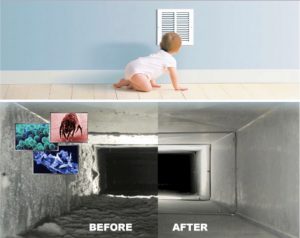Many homeowners feel they don’t need to bother with knowing the ins and outs of their Air Conditioners. After all, they can call in the HVAC professionals anytime they have an issue with their system. The truth, however, is that a good knowledge of the HVAC system will help homeowners to take better care of their HVAC system. The AC Float Switch, for instance, is one of the major important parts you should know about.
Like many other parts of your HVAC system, the AC float switch plays a critical role in keeping the entire system working harmoniously. But what exactly is the AC float switch, and why do you need one? We will discuss everything you need to know about it right here.
What Is An AC Float Switch?

In simple terms, An AC float switch is an electronic water sensor for your HVAC system. Also called condensate overflow switch or AC safety switch, the AC float switch is a fix for an overflow that the drainpipe cannot handle.
The AC float switch gives your air conditioner the ability to detect if it has a clogged drain and respond to it. If the switch detects that the air conditioner has a clogged drain scenario, it will shut the system off immediately to ensure that an overflow and possibly a leak doesn’t occur.
What is the Purpose of the Float Switch?
We have already hinted at the purpose of the AC Float Switch, but for the benefit of the doubt, we will explain it better here. To fully understand why the Safety switch is important, you need to know more about how ACs handle water.
When an AC is working, it pulls moisture from the air. Even as most parts of the water collect as condensation and return back to a gaseous state, a small amount of moisture is left behind in the unit. To collect this water, every air conditioner unit has a drain pan.
Sometimes, there could be an overflow of moisture in the drain pan, or the drain line can back up, making water spill out in the unit. This can often create microbial growth, which will jeopardize your air quality and pose a danger to your health and your HVAC system. The AC float Switch makes sure that this doesn’t happen.
It is possible for an AC drain to stop working properly. This can happen as a result of a lack of maintenance, especially when the drain lines are clogged with debris or dirt and can no longer remove water effectively. When the water in the drain pan goes above a certain level. The switch device will float and send a signal to the AC unit to turn off. This will effectively stop condensation and prevent pan overflow, which can cause major water damage.
Where Is The Float Switch Located?
The location of the float switch primarily depends on the orientation of your HVAC system. If you have a horizontal unit, the safety switch will be located in the secondary drain pan. If, on the other hand, you own a horizontal unit that doesn’t have a secondary drain pan or you have a vertical unit, then the safety switch will be on the drainpipe.
Irrespective of where the Float systems are located in AC units, they perform the same primary function. If you own an air conditioner unit that has a condensate pump, the pumps will work the same as the flow switch, shutting the AC off if there is a risk of water overflow.
It is also important to state at this point that AC float switches do not normally come with AC units. Rather, they are installed independently. They can easily be installed in a new AC unit or an old one. The cost of installing these safety switches is nothing compared to the high cost of repairing water damage. They offer so many benefits that we need to discuss briefly.
What Benefits Does The Float Switch Offer?
AC Float Switches offer several benefits. We’ve already mentioned one of the important ones. For the sake of emphasis, we will briefly discuss some of its biggest benefits:
It will let you know when your AC needs a repair
When the AC float switch makes your air conditioner shut off, you will definitely know that there is a problem. This means you will likely call in the expert at a time it is easier to fix any problem that is creating the issue with the drainage of the AC. Once the problem is fixed, you will enjoy your AC once again.
It will help prevent water damage in your home
If your AC unit doesn’t have a float switch, the chances that you will experience water damage in your home are pretty high. Water damage can be serious, ruining your home and furnishing. The safety switch will turn your AC unit off in time to prevent an overflow and leakage, even when you are not home.
It will save you money
We’ve hinted this point before. By preventing water damage in your home, your AC float switch can save you from making expensive repairs, not just to your AC unit but your home and furnishing.
It will help to preserve your indoor air quality
When there is an overflow in the AC drainpipe, the water that spills inside the unit normally encourages the growth of mold. These organisms will thrive in the AC unit and can spread to other areas of your home. These organisms are indoor air pollutants that can cause several health issues. The safety switch will minimize the chances of their growth.
The cost of installation is reasonable
AC float switches are not expensive. The cost of installing them in your AC units is also not expensive. So you can imagine the cost of installation far out weighs the cost of issues that could arise from not having one.
It will help to prolong the life of your AC Unit
The presence of AC float switches in your AC units will minimize the chances of the components of your AC units failing. This will have a positive impact on the lifespan of your HVAC system.
Conclusion
AC float switches are great for all types of air conditioners. You really need them if you want to prevent water damage that can result from AC usage. As discussed here, they offer several benefits. The cost of installing them is pocket-friendly, also. Call in the experts straightaway to install your flow switches and enjoy the many benefits they offer.




